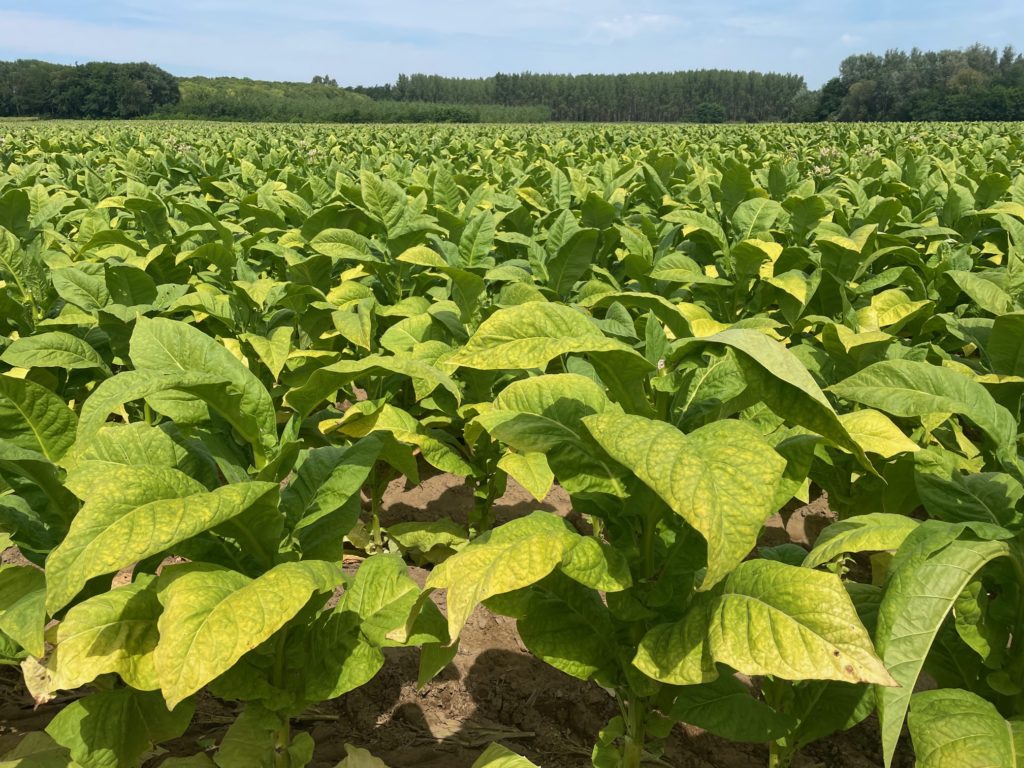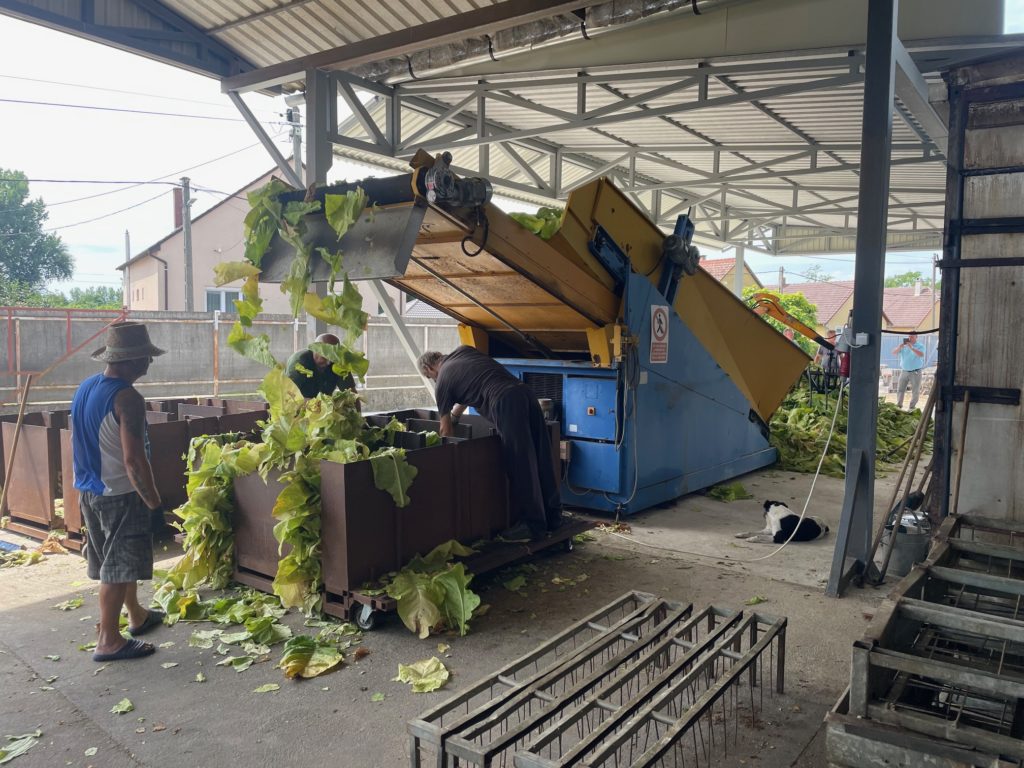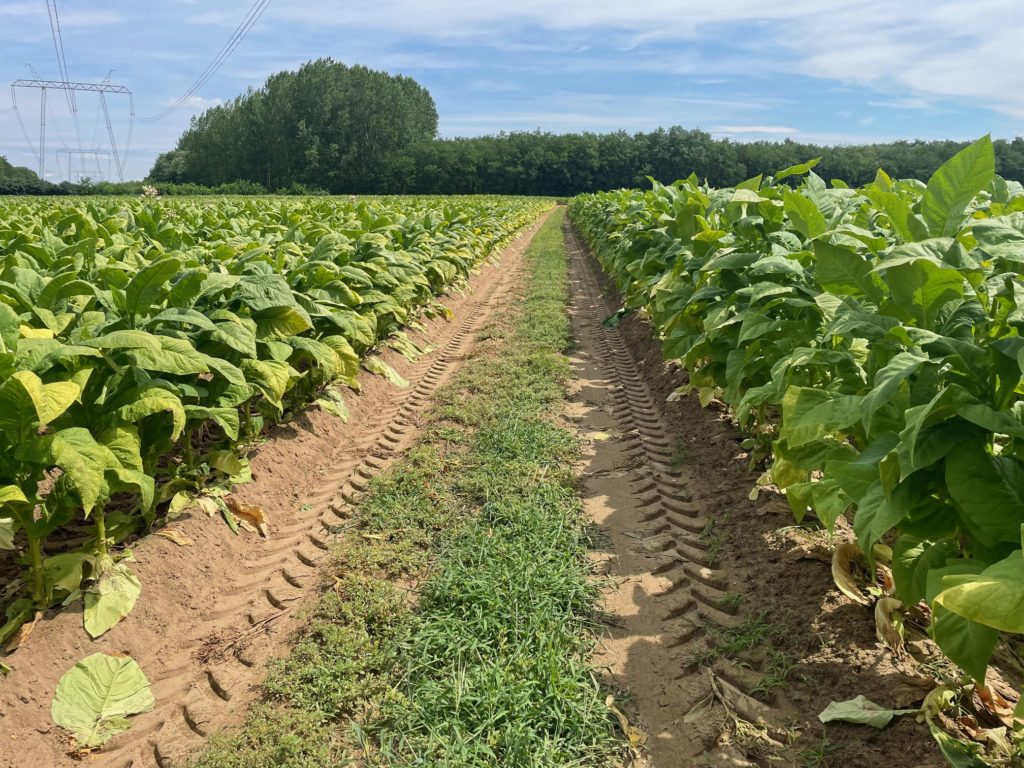
DOFER Tobacco Fermenting Ltd., a member of the Continental Tobacco Group, started harvesting artificially dried Virginia tobacco on 1 106 hectares, an increase of more than 10 percent compared to last year. Although the work has been hampered by a number of external factors – dry weather, labour shortages and crop protection difficulties – the growers and the Continental Tobacco Group are committed to ensuring a quality tobacco crop, supported by the 70 percent increase in the group’s tobacco purchase price over the past two years.
The family-owned Continental Tobacco Group, which owns the more than 130-year-old tobacco factory in Sátoraljaújhely, is vertically integrated – a unique feature in the Hungarian tobacco market: the group’s activities range from tobacco cultivation to the manufacture and sale of tobacco products. DOFER Tobacco Fermenting Ltd, as the group’s member responsible for tobacco cultivation, contracts and purchases about one third of the Hungarian tobacco production.
This season, in line with the trends of previous years, Virginia tobaccos for artificial drying account for a significant percentage of the domestic tobacco production: the contracted area has increased to 2 448 hectares nationwide, of which 45 percent, or 1 106 hectares, belong to the Continental Group.
The process of tobacco growing
The tobacco growing season starts at the beginning of the year, with the contracting of the growing areas. This is followed by the planting period, typically from March to the end of May, and from June onwards the field work begins, including the care of the tobacco plant, hoeing, topping, ducking, plant protection and irrigation. Harvesting work is usually completed in September-October, depending on the size of the farms and labour capacity.

The harvesting season started two weeks earlier than usual due to the exceptionally warm spring and early summer weather, but the crop prospects were and are still being affected by several factors: the humid, tropical air caused a peronospora infection not seen in tobacco for 40 years, which is mainly damaging to the more sensitive foreign tobacco varieties, and the limited choice of chemicals allowed in tobacco significantly hampered control. In some plantations, damage has already reached 30-40%. In addition, labour shortages are a problem that needs to be addressed and may be exacerbated by the arrival of other agricultural work, also typical at this time of year. The main damage is caused by the continuing heat and drought affecting a large part of the crop area, resulting in yield losses even in irrigated areas.
DOFER Ltd. assists farmers with continuous expert advice and emergency chemical licensing. The early start of the buy-out at the end of July and the quick payments are also very important support conditions for the producers.
Csaba Füzi, CEO of Continental Tobacco Corp., is looking forward to favourable weather conditions for tobacco growing in August. According to him, it is clear, however, that the effects of climate change are becoming more and more apparent in the cultivation of tobacco, and the extremely dry, almost tropical weather has once again highlighted the importance of irrigation. Its development and support remains a priority. Cooperation between industry players is important, sharing and training in sustainable cultivation practices, such as cultivation technology that enables high-quality mechanical harvesting, careful selection and expansion of the range of species, and the development and licensing of crop protection technologies must be a common goal.
